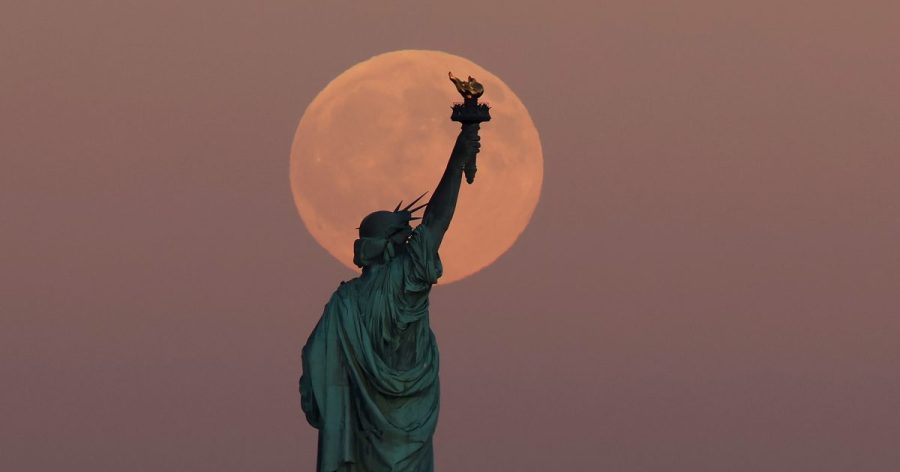Top Stories
Full Moon’s Impact on Sleep Confirmed: Urgent Insights Revealed

UPDATE: New research confirms that the full moon can significantly impact sleep patterns, leaving many to toss and turn under its bright glow. As the Harvest Supermoon rises on October 6, 2025, experts are urging individuals to consider the implications for their rest and mental health.
Studies reveal that people lose an average of 20 minutes of sleep in the nights leading up to a full moon. This disruption is linked to increased moonlight, which can delay the body’s internal clock and lower melatonin levels, the hormone responsible for sleep. As a result, individuals may take longer to fall asleep and spend less time in deep, restorative sleep.
Researchers emphasize that the effect is most pronounced in rural areas where artificial light is minimal, suggesting a direct correlation between moonlight exposure and sleep quality. A neurologist specializing in sleep medicine explains that while the sleep loss is modest, it can be particularly significant for those with pre-existing mental health conditions.
The folklore surrounding the full moon’s influence on mental health has persisted for centuries, with many attributing increased hospital admissions and erratic behavior to its phases. However, large-scale studies show no reliable patterns linking lunar phases to psychiatric crises. Although some findings indicate a slight rise in hospital admissions for conditions like bipolar disorder and schizophrenia during full moons, these results are often inconsistent and may reflect cultural factors rather than a biological basis.
A report from Indian psychiatric hospitals noted more use of restraints during full moons between 2016 and 2017, while Chinese researchers observed increased admissions for schizophrenia over several years. Despite these instances, the overall evidence remains weak, prompting experts to advise caution in drawing direct connections between the moon and mental health crises.
The urgency of this information is underscored by the potential implications for vulnerable populations. Sleep loss can exacerbate symptoms for those with conditions like bipolar disorder and epilepsy, highlighting the importance of understanding sleep patterns during lunar events.
Despite the inconclusiveness of the broader effects of the moon on human behavior, the influence of nighttime light exposure is clear. Experts argue that contemporary sources of light—such as streetlights and mobile screens—have a far more significant impact on sleep than the moon itself.
As we approach the full moon, individuals are encouraged to take proactive steps to mitigate its potential effects on their sleep. Limiting exposure to bright lights in the evening can help synchronize circadian rhythms and promote better rest.
In conclusion, the full moon may slightly affect sleep patterns, but its role in mental health remains largely mythological. Awareness of these developments is critical, particularly for those who may be sensitive to changes in their sleep environment. As the Harvest Supermoon approaches, consider adjusting your nighttime routine to ensure restful sleep.
-

 Sports2 weeks ago
Sports2 weeks agoSteve Kerr Supports Jonathan Kuminga After Ejection in Preseason Game
-

 Politics2 weeks ago
Politics2 weeks agoDallin H. Oaks Assumes Leadership of Latter-day Saints Church
-

 Business2 weeks ago
Business2 weeks agoTyler Technologies Set to Reveal Q3 2025 Earnings on October 22
-

 Lifestyle2 weeks ago
Lifestyle2 weeks agoDua Lipa Celebrates Passing GCSE Spanish During World Tour
-

 Entertainment2 weeks ago
Entertainment2 weeks agoZoe Saldana Advocates for James Cameron’s Avatar Documentary
-

 World2 weeks ago
World2 weeks agoD’Angelo, Iconic R&B Singer, Dies at 51 After Cancer Battle
-

 Science2 weeks ago
Science2 weeks agoChicago’s Viral ‘Rat Hole’ Likely Created by Squirrel, Study Reveals
-

 Lifestyle2 weeks ago
Lifestyle2 weeks agoKelsea Ballerini Launches ‘Burn the Baggage’ Candle with Ranger Station
-

 Health2 weeks ago
Health2 weeks agoRichard Feldman Urges Ban on Menthol in Cigarettes and Vapes
-

 Business2 weeks ago
Business2 weeks agoMLB Qualifying Offer Jumps to $22.02 Million for 2024
-

 Health2 weeks ago
Health2 weeks agoCommunity Unites for Seventh Annual Mental Health Awareness Walk
-

 Business2 weeks ago
Business2 weeks agoMega Millions Jackpot Reaches $600 Million Ahead of Drawings








